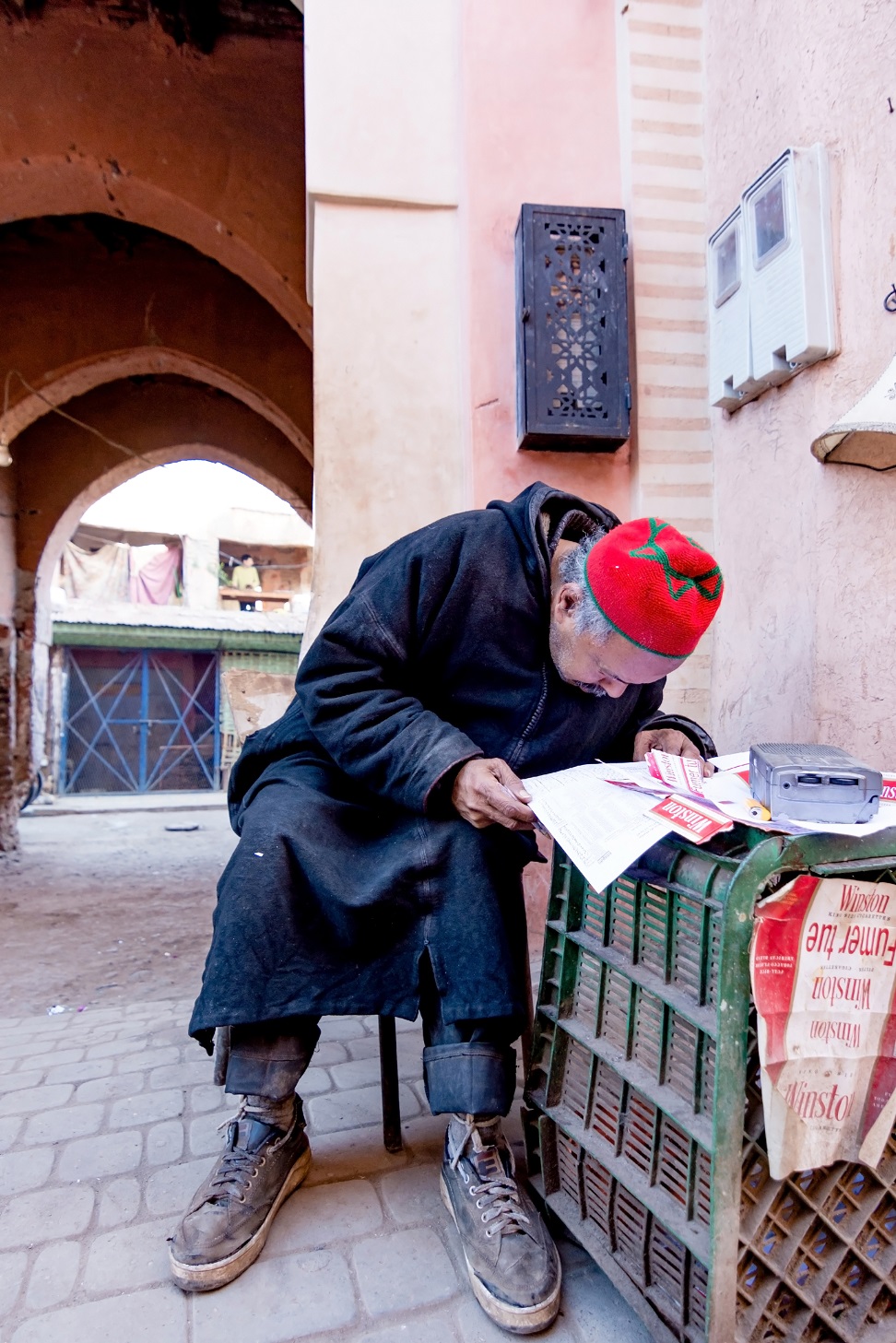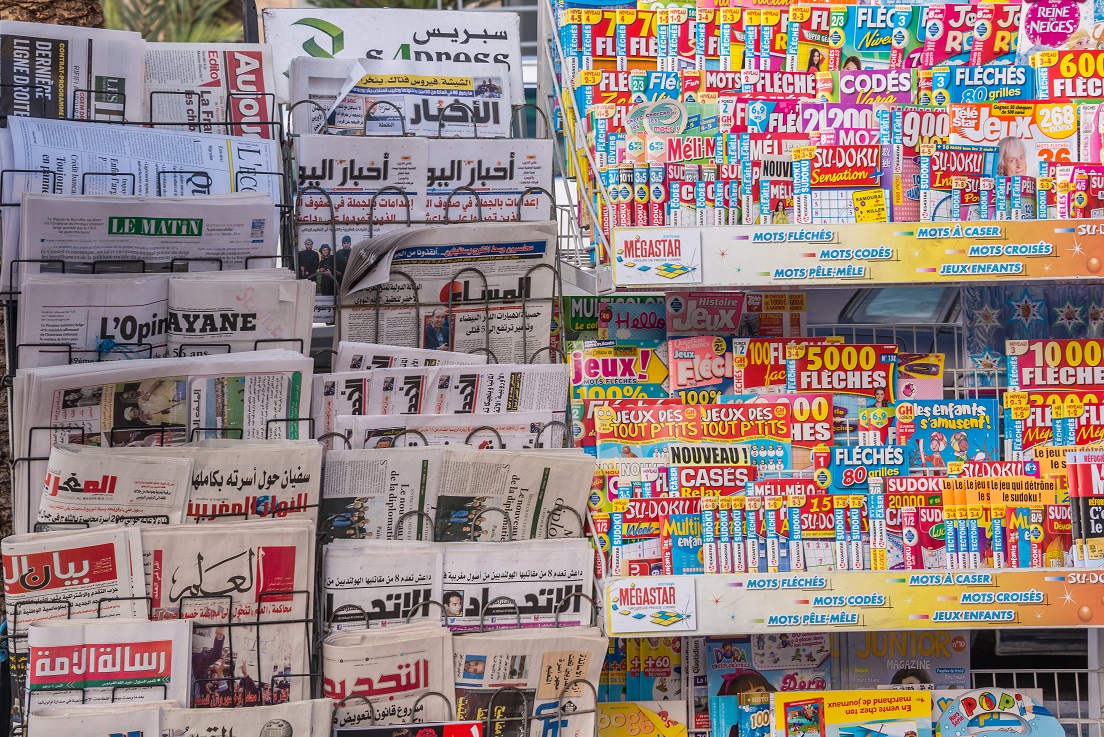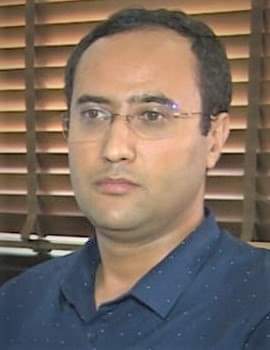يعد التنوع الفكري والسياسي والثقافي داخل غرف التحرير آخر قلاع المسكوت عنه في مجال الصحافة وأخلاقياتها؛ فقد ابتدعت هذه المهنة في بداياتها فكرة "الخط التحريري"، ومن خلالها أمكن تمرير كل شيء: الحياد والمهنية والموضوعية، كما التقييد والتوجيه والحصار.
يسمح الخط التحريري بتحديد هوية الصحفيّ وانتمائه وفكره، وحتى لون بشرته الذي يمكنه من الالتحاق بغرفة التحرير؛ إذ كيف لصحفي أسود البشرة أن يلج غرفة تحرير صحيفة يمولها رجل أعمال أبيض متطرف مثلا؟
التنوّع أطال عمر صحيفة
عشتُ شخصيا تجربة مهنية في السنوات الأخيرة كانت كلمة السر في الجانب المشرق منها (لا شك أن لها جوانب أخرى أقل إشراقا) هي التنوع الفكري والسياسي والثقافي؛ فقد كانت صحيفة "أخبار اليوم" المغربية في بداية العام 2018 تعيش واحدة من أخطر أزماتها، حين توليتُ الإشراف على إدارة نشرها. كان الكثيرون، إن لم يكن أغلب المراقبين، يتوقعون انطفاء شعلة هذه الصحيفة خلال أسابيع أو شهور من بدء أزمتها، لكنها تمكنت من الصمود والاستمرار لنحو ثلاث سنوات لأسباب كثيرة؛ أهمها -أو أقربها إلي- هو احترام التنوع داخل غرفة تحريرها الذي انعكس على جودة العمل الصحفي.
كثيرا ما تعمد المؤسسات الصحفية إلى اختيار الانتماء إلى "معسكر" معين، إن لم يكن ميلا منها إلى أفكاره ومرجعياته، فسعيا إلى إبقائه "ظهرا" وسندا لها في مهنة قدرُها أن تتحرك بين أقدام "الفيلة" من أصحاب النفوذ والسلطة. لكن خياري بصفتي مديرا للنشر (أي مسؤولا أمام القانون وأمام القراء ومن يشعرون بقدر من الانتماء أو التعاطف مع الصحيفة) كان هو التنوع والانفتاح على جميع الآراء والأفكار، مع الإبقاء على الانحياز الوحيد لجهة البحث عن الحقيقة والقيام بدور الصحافة في السهر على مصالح المجتمع وإبقاء كل ذي سلطة أو نفوذ تحت الأضواء الكاشفة.
في لحظة استهداف واضح لصحيفة يعرف الجميع أنها كانت الأكثر إزعاجا وإرباكا للأطراف الساعية إلى الهيمنة وفرض وجهة نظرها عبر أساليب مختلفة، كان البعض يتوقع من الصحيفة تطرفا في المواقف وانحيازا سافرا لهذه الجهة السياسية أو تلك لتحصيل الدعم والمساندة، لكن الانحياز الذي وقع كان لجهة المهنة والوظيفة التي اختُرِعَت من أجلها الصحافة.
أول خطوة في هذا الاتجاه تمثلت في وضع الحيز المخصص لنشر الرأي اليومي (بمثابة افتتاحية) رهنَ إشارة أقلام مختلفة ومتنوعة حد التناقض أحيانا؛ فكنتَ تجد رأي كاتب له خلفية يسارية واضحة في هذا اليوم، ومقالا لصحفي منحدر من تجربة سياسية ومهنية إسلامية في اليوم الموالي، ثم تجد قلما ذا مداد محافظ فكريا في اليوم الثالث، ثم كاتب بنبرة شبه علمانية في اليوم الرابع، وهكذا.
لم يكن هذا التنوع والاختلاف ضد وحدة الخط التحريري للصحيفة ولا طمسا لهويتها كما اعتقد البعض في البداية، بل كان كُتّاب تلك المقالات الافتتاحية في مستوى من المهنية جعلهم يحتفظون بالمشترك والمتفق عليه مهنيا، مع استثمار مساحة الحرية شبه المطلقة في التعبير عن الآراء، حتى إنهم كانوا أحيانا يدلون بتعليقات متعارضة حول الحدث نفسه، أو يفتحون زوايا للنقاش والتحليل أغفَلَتها التغطية الإخبارية والتقارير الصحفية.
أدى ذلك في النهاية إلى تقوية مصداقية الجريدة ومكانتها لدى القارئ؛ على اعتبار أنها صحيفة ذات اختيار تحريري واضح من حيث الموقع الذي اختارته بين القوى السياسية والاقتصادية المتنافسة، لكنها لا تقصي أي وجهة نظر مهما كان اختلافها معها كبيرا.
واجهَتْ هذه التجربة صعوبات ومقاومة كبيرة في بدايتها؛ إذ كنتُ -بصفتي ناشرا للصحيفة- أتعرض لضغوط من أطراف مختلفة، بعضها لاعتراض شخصي على هذا الكاتب أو ذاك، بسبب أسلوبه أو خلفيته السياسية والفكرية، وبعضها الآخر لرغبة من البعض في حمل الصحيفة على الاصطفاف إلى جانبه سياسيا. لكن، ومع مرور الوقت، تحوّل هذا المعطى المتمثل في التنوع واحترام الاختلاف داخل هيئة التحرير إلى مصدر قوة للصحيفة وسبب رئيس لاستمرارها؛ لأنه أصبح أكبر دليل على حيادها ومهنيتها وبعدها عن خدمة أي أجندات أو توجيهات للرأي وزوايا المعالجة الخاصة بمضمونها نحو هذه الوجهة أو تلك.

إرث جورج فلويد
لم يصبح موضوع التنوع داخل غرف التحرير مادة للتحليل (بهذه الطريقة القوية) في مختبرات الإعلام الحديثة إلا بعد حادثة مقتل جورج فلويد؛ الأمريكي من أصول أفريقية، والذي لفظ أنفاسه الأخيرة خنقا تحت ركبة شرطي أمريكي أبيض يوم 25 مايو/أيار 2020.
اتخذ النقاش حول فكرة التنوع مسلكين اثنين؛ أحدهما أخلاقي، على اعتبار أن الحادثة كسرت أخيرا طابو الحدود المهنية التي يخلفها تنميط غرف التحرير؛ إذ لا يمكن أن تحضر بعض المواضيع إلا بحضور ممثلين للفئات التي تعاني من تبعاتها، فيما كان المسلك الثاني تجاريا محضا؛ فبعض الدراسات تحاول "إغراء" الناشرين بالعائد المالي الذي يحققه التنوع داخل غرف التحرير، حين يسمح لها ذلك بتوسيع قاعدة جمهورها ومن ثم زيادة أرباحها من المبيعات والاشتراكات والإعلانات.
لكن علاقة المؤسسة الصحفية مع الجمهور تحتاج إلى أكثر من المصداقية والثقة؛ فالاكتفاء بهذا المستوى ينطوي على قدر غير هين من التعالي وادعاء حيازة "سلطة معنوية" ما على المتلقي؛ أي إنه عليك أن تدعمنا لأننا نملك ناصية المهنة ونقدمها لك وفقا لقواعدها الصارمة. تحتاج هذه العلاقة، ولو جزئيا، إلى شعور المتلقي بأن المؤسسة الإعلامية "تمثله" بشكل أو بآخر.
فحين يكون هذا الجمهور المستهدف متنوعا ومركبا، لا يمكن جعله يشعر بوجود هذا النوع من التمثيلية من خلال المحتوى وحده مهما بلغت درجة تنوعه، بل يحتاج المشاهد أو القارئ أو المستمع أن يشعر بوجود إنسان "يشبهه" خلف إنتاج المحتوى ونشره. في الشاشة يدقق المشاهد في تفاصيل من يخاطبه وملامحه وهندامه، وفي الإذاعة يكون لامتلاك ناصية اللغة وحضور تلك اللكنة والنبرة القريبة من المتلقي في صوت المذيع أهمية أساسية، وفي الصحافة المقروءة أيضا يحتاج المتلقي إلى الشعور بوجود أفراد داخل غرفة التحرير ينحدرون من منطقته، أو فئته، أو عرقه... إلخ هكذا يتجاوز المتلقي عتبة الاقتناع ليصل إلى الشعور بقدرة هذه المنصة على نقل انشغالاته وهمومه الخاصة.

تنوع الانتماءات.. تنوع الخلفيات
كشفت دراسة لمؤسسة نايت الأمريكية غير الربحية، أُنجِزَتْ قبل حادثة جورج فلويد، أن 69 بالمئة من الأمريكيين يعتبرون أن من المهم لغرفة التحرير أن تعكس التنوع السكاني للبلاد، وترتفع أهمية هذا التنوع لدى الفئات الأقل حظا في مجالي المال والسلطة؛ كالأمريكيين من أصول أفريقية أو الناطقين بالإسبانية أو ذوي الأصول الآسيوية (1).
إذا لم تكن غرفة التحرير متنوعة بما يكفي، سينعكس ذلك بالضرورة على طبيعة التغطية التي تقوم بها والمواضيع التي تتناولها. التحلي بحس مهني عال وثقافة واسعة ورغبة -وإن كان حافزها ماديا/تجاريا- لا يعوض القدرة التي يتمتع بها الانتماء الاجتماعي أو العرقي أو الثقافي لعضو غرفة التحرير، والذي يجعله "متحدثا" باسم الفئة التي ينحدر منها، سواء شعر بذلك أم لم يشعر؛ ففي الحالة الأمريكية، حيث تتوفر أعلى درجات وفرة الإحصائيات والمعطيات المفتوحة، تجد التفاوتات الاجتماعية وظواهر العنصرية والتهميش الموجودة في المجتمع أحد تفسيراتها في بنية المؤسسات الإعلامية؛ إذ كشف استطلاع التنوع الذي أجرته جمعية ناشري الصحف الأمريكية سنة 2019 أن أقل من 19 بالمئة من مسيري جميع المؤسسات الإعلامية المطبوعة والإلكترونية هم من ذوي البشرة السوداء (2)، بينما كشف استطلاع آخر أن 17,2 بالمئة فقط من مديري الأخبار في القنوات التلفزيونية و8 في المئة فقط من مديري الأخبار في المحطات الإذاعية هم من ذوي البشرة السوداء (3).
ومهما بلغت درجة الصرامة في توحيد و"تنميط" العمل داخل غرفة التحرير، فإن الخلفية الثقافية والانتماءات الخاصة بكل فرد من أفراد الطاقم تنعكس على المحتوى الذي ينتجه. والصحفي الذي لا ينتمي إلى إحدى الفئات العرقية أو اللغوية أو الثقافية للمجتمع معرض بشكل كبير للسقوط في خطأ استعمال الأحكام المسبقة وتكريس الصور النمطية، اعتقادا منه أنها جزء من "الحقيقة".
وينطبق الأمر نفسه على الاختلافات السياسية والفكرية؛ ذلك أن الصحفي المنحدر من مدرسة فكرية "تقدمية"، لا يمكنه أن يحجب فكرة اعتباره بعض التيارات الفكرية الأخرى "رجعية" أو "متخلفة"، كما لا يستطيع الصحفي الذي صَقَل ثقافته في حضن تيار فكري محافظ، أن يطرد من فكره وهو يخبر أو يعلّق على موضوع يهم المختلفين معه فكريا أنهم "يخدمون الأعداء" أو يشقون "الصف الوطني". ويزداد وقع الخلفية الفكرية والثقافية الخاصة بالعضو في غرفة التحرير، حين يتعلّق الأمر بموقف "أخلاقي" تجاه فئة ذات اختيارات مختلفة في المجال العام أو على صعيد الحياة الشخصية.
إعلام متنوع لا حاطب ليل
قصة البحث عن التعدد والتنوع السياسي والثقافي داخل صحيفة "أخبار اليوم"، كما عشتُها، لم تقتصر على صفحتها الأولى وافتتاحيتها وتغطياتها الإخبارية، بل شملت حتى مقالات الرأي التي كانت تُنشر في صفحة داخلية يومية، إلى جانب أعمدة قارّة في الصفحة الأخيرة. يُفترض، حسب المفهوم الكلاسيكي لغرف التحرير، أن تُحدَّد مساحة الحرية لكُتّاب الأعمدة ومقالات الرأي من طرف المؤسسة الإعلامية، بالاستناد إلى معسكر اصطفافها ومصادر تمويلها وميولات ناشرها الفكرية والسياسية والثقافية.
إنه أمر نجحت صحيفة "أخبار اليوم" المتوقفة عن الصدور في كسره، من خلال المشارب المختلفة لكتاب أعمدتها القارة، لدرجة أننا كنا نحرص بشكل متعمد على عدم الجمع، ما أمكن، بين رأيين يمتحان من المرجعية الفكرية نفسها في العدد نفسه؛ فكنتَ تجد كاتبا يمينيا في هذا الركن وآخر يساريا في الركن المقابل، وأحيانا كان يتوسطهما رأي من فصيلة ثالثة.
تجربة التنوع هذه كانت تصل مداها في تقليد كانت تمارسه هذه الصحيفة، يتمثل في إعطاء الكلمة لعدد كبير من الشخصيات السياسية والفنية والثقافية للإدلاء بآرائهم حين يتعلق الأمر بقضية كبيرة أو ملف حساس أو حدث مهم، لكنه لم يكن تنوعا أعمى ولا حاطب ليل؛ إذ حرصت هذه التجربة على تجنب الكثير من الوجوه المستهلكة والتي تردد الرواية نفسها (غالبا ما تكون رسمية أو شبه رسمية)، لكنها تتجنب أي مجازفة بتجاوز المسموح به في التحليل والنقد، وهو ما كان يصيب خصوم هذه الصحيفة بالجنون.
وأذكر، في أحد ملفاتها الأخيرة من هذا النوع، كيف أن الأطراف التي كانت تزعجها هذه الصحيفة بوجودها ونوعية الصحافة التي تمارسها، قد عابت عليها الاقتصار على رأي واحد في تناول الموضوع، ولم تكن تلك الأطراف تقصد سوى أن جميع المشاركين ممن يُشهد لهم بالاستقلالية والنزاهة الفكرية هم من يشاركون في تحليل الأحداث الكبرى. وفي واقع الأمر، كان المشاركون في ذلك الملف يتناقضون فيما بينهم من حيث المنطلقات وحتى النتائج: كان منهم اليساري واليميني والإسلامي والليبرالي، المعتدل والجذري. وحتى في السؤال الذي طرحته عليهم الصحيفة كانت إجاباتهم مختلفة ومتناقضة.
تنوّع عمودي بين الأجيال
ينبغي الانتباه إلى أن التنوع داخل غرف التحرير لا يتعلق فقط بالاتجاه "الأفقي"؛ أي بالانتماءات الفكرية والسياسية والعرقية والثقافية، بل هناك أيضا اختلاف وتنوع مهم في الاتجاه "العمودي"، ويتعلق بالأجيال المختلفة. كثيرا ما تسقط المؤسسات الإعلامية العريقة والراسخة في المهنية فيما يشبه "الفقاعة" التي بات الحديث عنها في علاقة بالشبكات الاجتماعية، أي انغلاق الفرد أو المجموعة في حيّز صغير والقيام بعمليات التبادل والنقاش داخل هذا الحيز، مع شعور واهم بوجود الاختلاف والتنوع.
وأذكر دائما تلك التجربة الخاصة التي عشتُها في أول تدريب مهني خضته بصفتي طالبا للصحافة صيف العام 2006، في واحدة من أعرق الصحف المغربية، حيث عبّر مدير نشرها، وهو صحفي مجرّب وأديب مرموق، عن دهشته تجاه الأفكار البسيطة التي أتيتُ بعد سنة واحدة من دراسة الصحافة أحملها معي، لدرجة وضعني معها في موقف محرج وهو يصر علي كي أنجز تقريرا شاملا حول الصحيفة ومضامينها وأبدي فيه ملاحظاتي، وهو ما جعلني في موقف صعب مع بعض الصحفيين ورؤساء التحرير ومسؤولي بعض الأقسام الذين واجهَهُم في اجتماع رسمي بما قدمته من ملاحظات.
هذا الاتجاه "العمودي" في التنوع داخل غرف التحرير زادت من أهميته تكنولوجيا الاتصال الحديثة؛ إذ لم يعد بإمكان الصحفي الذي تجاوز عتبة الثلاثين مثلا، وهو الذي يعد في الاعتقاد الكلاسيكي شابا صغير السن، أن يدعي الإلمام بقضايا وانشغالات جيل المراهقين وشباب العشرينات الأولى من العمر. بل إن مخاطبة بعض الفئات العمرية بات يمر حتما بواسطة نظراء للجمهور المستهدف؛ لاستحالة تمكن الأجيال الأخرى من القاموس والبنية المختلفة للخطاب والحوار المتداول لدى بعض الفئات العمرية، خاصة عبر بعض المنصات التواصلية الجديدة.
مراجع:
2) https://www.newsleaders.org/2019-diversity-survey-results
3) https://www.rtdna.org/article/2019_research_local_newsroom_diversity




















![Palestinian journalists attempt to connect to the internet using their phones in Rafah on the southern Gaza Strip. [Said Khatib/AFP]](/sites/default/files/ajr/2025/34962UB-highres-1705225575%20Large.jpeg)




















